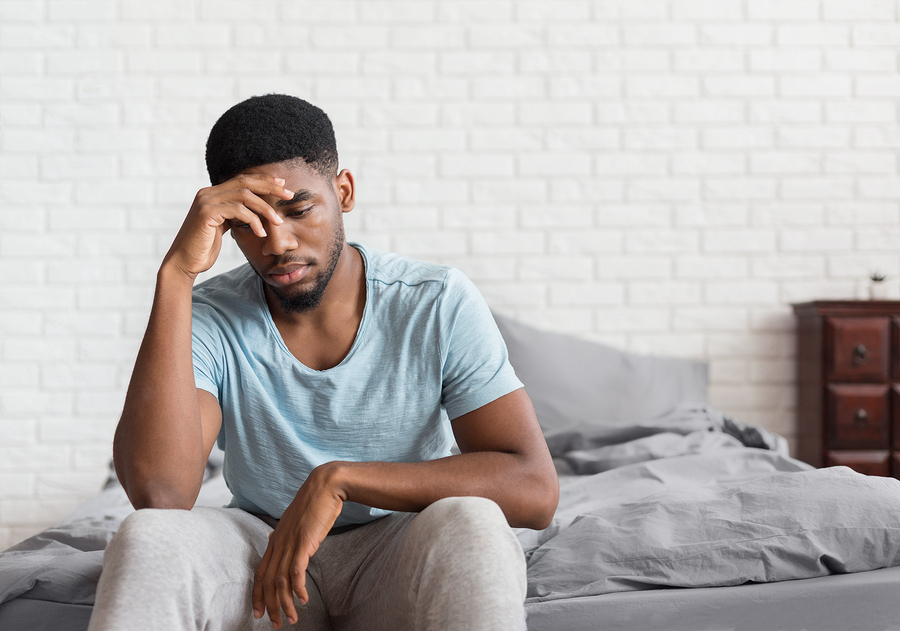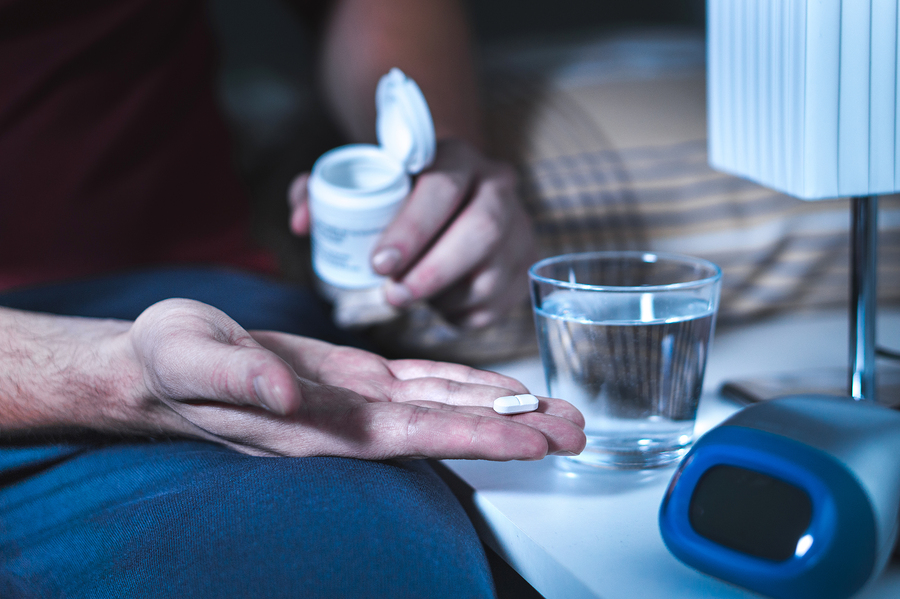
Anyone who has suffered from insomnia knows it’s nothing to be scoffed at. The condition can profoundly affect your life. While science is not 100% sure of why humans need to sleep, the fact that we need it is not up for debate. When you’re not getting enough sleep at night, it is difficult to function fully throughout the day. Your emotions are harder to keep in check, and you find yourself snapping at people with little provocation.
But the worst part of insomnia is the nighttime itself. The later it gets, the more anxious you become that you won’t get any sleep. The more anxious you become, the less likely you are to sleep. More significantly, most people aren’t used to being alone with their thoughts for extended periods of time. Lying in bed at night, with no distractions, it is tough to keep your guard up. Intrusive thoughts creep in, and they can be very distressing.
It is no wonder that insomniacs will try any and every means of getting to sleep. It is not about functioning in the morning, but a matter of getting through the night itself.
Alcohol and Insomnia: It Takes Two
People suffering from insomnia often turn to substances. There are pharmaceutical solutions, but they don’t work for everyone and a lot of people are skeptical of them or are concerned about the costs of seeing a psychiatrist. A full 28% of insomniacs use alcohol to help them fall asleep.
On the other hand, the cause and effect relationship is not one way. Sleep disorders can be caused by alcohol abuse. Chemicals in the brain, such as serotonin and norepinephrine, are responsible for the sleep process. Alcohol abuse affects your levels of these chemicals, burning through serotonin and raising levels of norepinephrine.
In other words, while using alcohol to fall asleep may work the first few times, it will ultimately be far more disruptive to your sleep functioning. Insomnia gets worse, causing you to use more alcohol, which exacerbates the problem.
Why Not Stop?
To someone who hasn’t suffered from a sleep disorder, it may seem logical to stop using alcohol once it no longer helps you sleep. After all, it doesn’t take a team of researchers to tell most alcoholics that the substance isn’t doing its supposed job.
What this line of reasoning fails to take into account is that insomniacs are not solely concerned with getting to sleep. In the middle of the night, the number one goal of every insomniac is to make it to the morning. At 2 a.m., the night seems interminable. Morning is a distant island in time. Nighttime can start to feel like torture. Even the thought of trying to go to sleep can be terrifying to someone suffering from insomnia.
The Vicious Cycle Worsens
Unfortunately, this state of affairs is not sustainable. The alcohol abuse keeps making the sleep disorder worse. At the same time, the alcoholic needs more and more alcohol to make it through the night. Your body becomes dependent on alcohol, and instead of it being an effective way to fall asleep, it makes it almost impossible to function during the day. Rather than resolving your insomnia, you now suffer from insomnia and alcoholism.
Furthermore, if you now stop drinking alcohol to try and improve your sleep, you will experience withdrawals which will, in the short term, lessen your chances of a good night’s rest.
Alcoholics suffering from insomnia therefore need to get treated for both problems. Treating the insomnia effectively is impossible while still drinking. Sobriety, on the other hand, will be incredibly difficult to maintain as dawn approaches on a sleepless night.
Insomnia Treatments for Alcoholics

Treatment of substance abuse and insomnia should occur concurrently. The following are the most common treatments for insomnia in alcoholics.
Pharmaceuticals
Due to the nature of alcoholism, pharmacological treatment options are limited. Traditional over-the-counter medications either don’t work or are contraindicated for alcoholics. For example, Benadryl causes grogginess and drowsiness and has negative effects on the later stages of sleep. Melatonin and herbal supplements have mixed results, and are more useful for people with less severe sleep problems.
Prescription medication, on the other hand, comes with more significant risks. The benzodiazepine class, such as Valium and Klonopin, are addictive, and since one builds a tolerance towards them, they are a short-term solution at best. The “Z-drugs” that have largely replaced them, including the well-known Ambien, can also be addictive, posing too much of a risk for someone suffering from a substance abuse disorder.
Certain medications used as antipsychotics and mood stabilizers, such as Seroquel, offer both antidepressant and anti-anxiety effects, as well as a long-term sleep solution. Since they are not addictive, they can be perfect for some addicts. However, they can have a negative impact on the liver and other organs that may already be compromised by alcohol use. There are also side-effects, such as weight gain and low sex drive, that deter some from this potential solution.
Behavioral
Certain behavioral treatments have been deemed effective for sleep disorders in alcoholics. Cognitive-behavioral therapy (CBT) can help eliminate some of the psychological barriers to sleep, as well as giving you skills with which to relax.
Mindful relaxation techniques, as well as sleep meditations, can also help some alcoholics suffering from insomnia.
Behavioral treatments have been found to work with many individuals. They are often used together with pharmaceutical treatments.
Treating Both
Insomnia is a very real problem for alcoholics. Sleep disorders can lead to alcoholism, just as alcoholism leads to sleep disorders. It quickly becomes a vicious cycle, and treating one at a time is difficult. Anyone seeking to treat their alcoholism should not ignore their sleep problems. When withdrawing from alcohol, sleep problems will get worse before they get better, and lead to a higher chance of relapse.
Enter treatment today for a holistic approach to alcoholism and all the issues that follow in its wake.